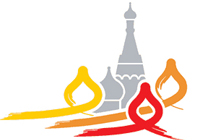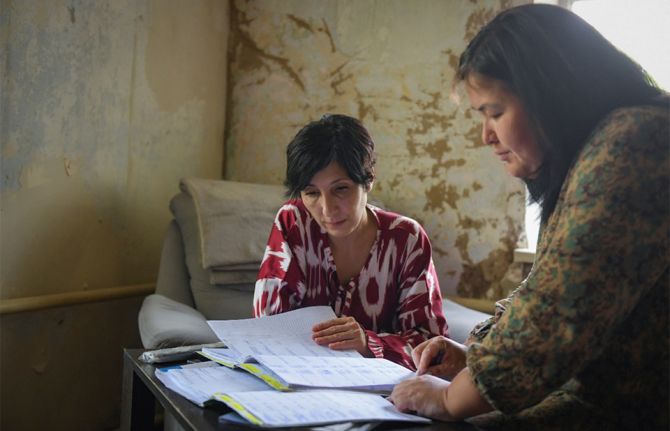
Feature Story
Towards Universal Access in Eastern Europe and Central Asia: Delivering on AIDS today and in the longer term
14 April 2008
14 April 2008 14 April 2008
The Second Eastern European and Central
Asian AIDS Conference will take place in
Moscow, Russia, 3-5 May 2008.
Eastern Europe and Central Asia have faced significant increases in the numbers of new HIV infections in recent years. In 2007, an estimated 1.6 million people were living with HIV in Eastern Europe and Central Asia, a dramatic increase of 150% from the 630,000 people in 2001.
Such an escalating epidemic threatens to impact the workforce and put a heavy burden on the health sector. In order to urgently address this, the Government of the Russian Federation with support from UNAIDS and the International AIDS Society (IAS) joined together to organize the first Eastern European and Central Asian AIDS Conference (EECAAC) in May 2006.
This was a groundbreaking event –the first-ever Russian-speaking AIDS conference– and provided an unprecedented regional forum for more than 1500 delegates who included political leaders, health professionals, scientists, representatives of voluntary organizations, people living with HIV and donors involved in the response to the AIDS epidemic across the region. It was heralded a success and decided to be held every two years.
Second Eastern Europe and Central Asia AIDS Conference
The second EECAAC will take place in Moscow, Russia, 3-5 May 2008. The conference will once again provide dialogue and interaction among political and community leaders, scientists and other researchers, people living with HIV and representatives of civil society from across the region. They hope to take stock of the situation, share best practices and mobilize action in response to the challenges of the AIDS epidemic.
The government of the Russian Federation is the largest financial supporter of the Second Eastern European and Central Asian AIDS Conference, confirming the country’s political commitment to the AIDS response.
The Co-chairs of the 2008 Conference Organizing Committee include Global Fund Executive Director Michel Kazatchkine, IAS Executive Director Craig McClure and UNAIDS Executive Director Dr Peter Piot. Dr Piot will very actively participate at this year’s event.
This conference occurs at a crossroad in the regional AIDS response, in particular in Russia, where there are strong indications of growing country leadership and commitment, increased domestic resources, and breakthroughs in relation to the Universal Access to HIV prevention, treatment, care and support. The conference is an opportunity for governments to seek credit for these positive developments, but also for activists and international media to emphasize the persisting gaps and shortcomings.
“This conference is an important forum in which leaders and experts can gather and discuss the issues impacting the AIDS response in this region,” said UNAIDS Regional Support Team Director a.i., Sergei Furgal. “Strong leadership and evidence-informed responses are key to curbing the rising epidemics in Eastern Europe and Central Asia,” he continued.
Accelerating Access to HIV Prevention, Treatment and Care for All
“Accelerating Access to HIV Prevention, Treatment and Care for All” is the official conference theme. This theme will allow many aspects of an expanded and improved response to the epidemic to be examined during plenary and satellite sessions and skills-building workshops. These include efficient systems to provide quality treatment balanced with the robust prevention programs, especially targeting key populations including people who inject drugs, men who have sex with men, women, young people, sex workers and their clients.
The conference will also feature a Youth Village – a community dialogue space to increase the visibility of HIV issues among young people and to promote youth involvement in addressing HIV in Eastern Europe and Central Asia.
A Community Dialogue Space, “Besedka”, will provide community representatives with a space for open group discussions on key issues, dialogue with international leaders, cultural and interactive events, presentations and media events.
Regional forum to support national responses to HIV
Although there are national differences in the nature of the epidemics within Eastern Europe and Central Asia, the drivers of the epidemic – primarily injecting drug use, with heterosexual transmission increasing – and many of the challenges to improving access to services are similar across the region.
The upcoming Second Eastern European and Central Asian AIDS Conference will be an important forum for vital discussion helping countries to understand what is driving their epidemics and how to reach key populations at higher risk of HIV infection.
Towards Universal Access in Eastern Europe and Ce
Feature stories:
Eastern Europe and Central Asia are facing the challenge (14 May 2006)
External links:
Second Eastern Europe and Central Asia AIDS Conference
UNAIDS in Russia



